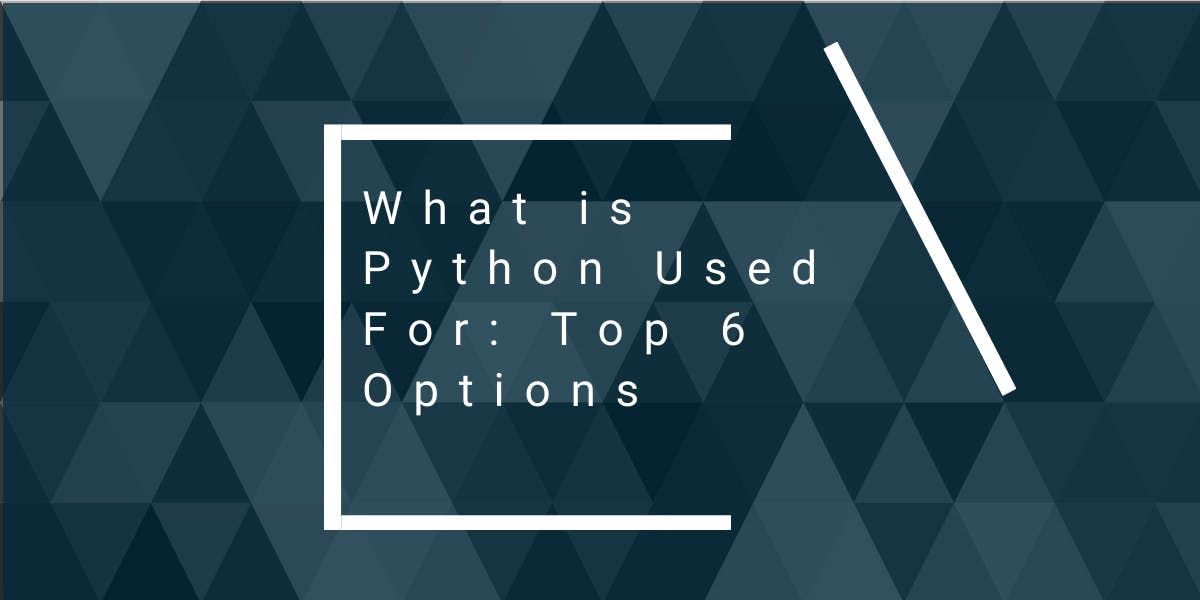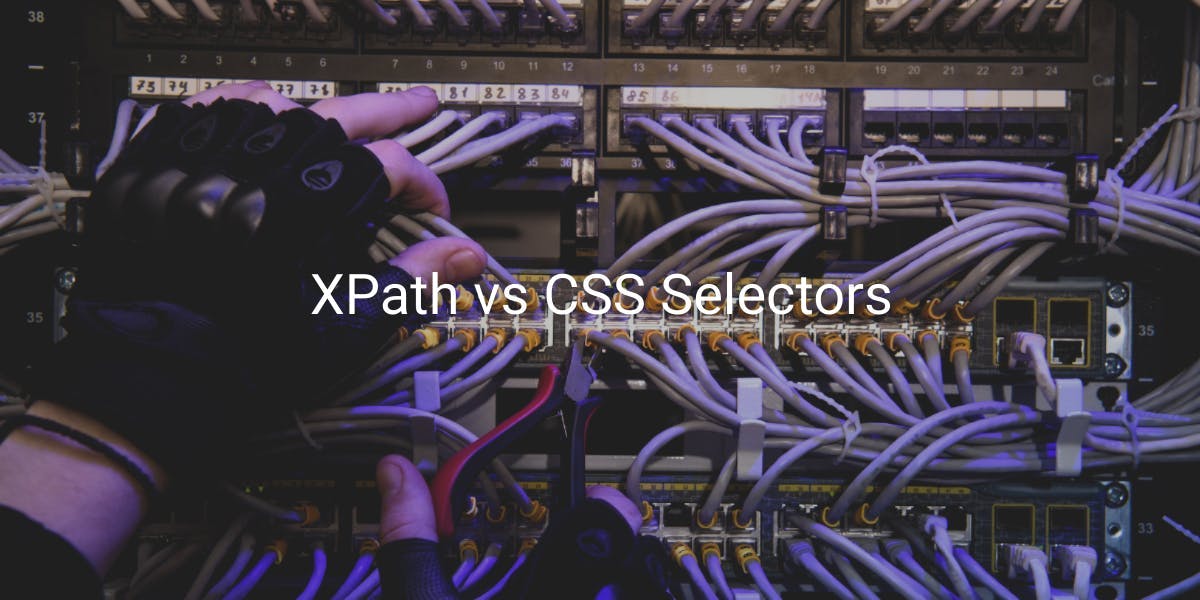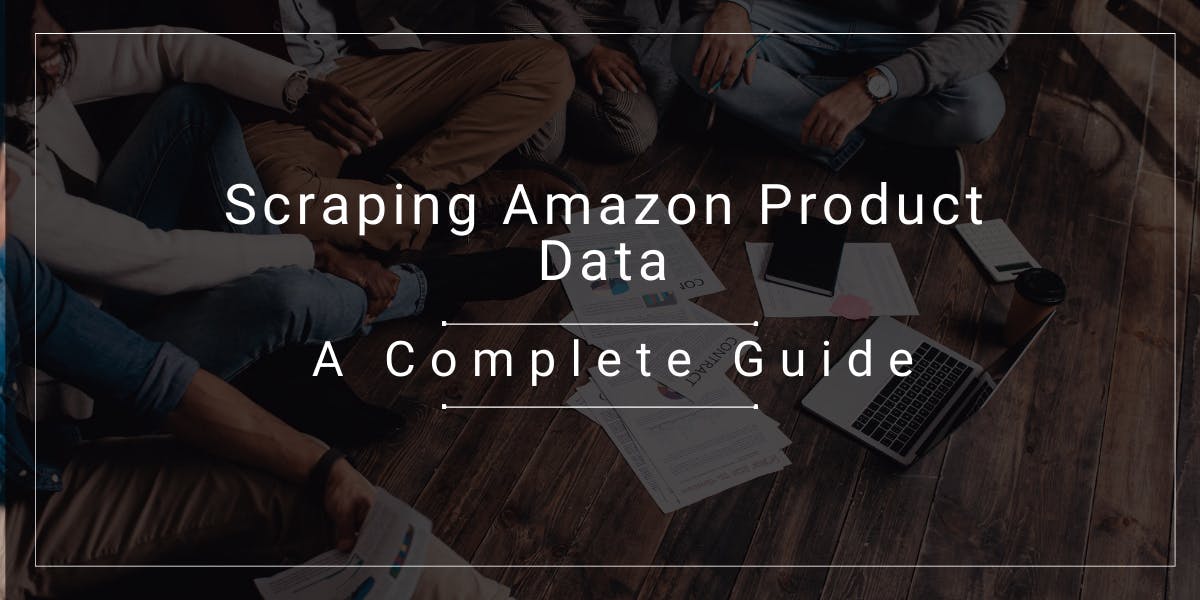What is Python Used For: Top 6 Options
Flipnode on Apr 19 2023

Python is a versatile programming language that enables developers to express ideas using concise code, making it a popular choice for general-purpose applications. The language was developed with a focus on syntax and code readability, allowing it to be used in a wide range of applications, from building web applications to performing data analysis. Due to its widespread use, Python has been compared to a chameleon in the programming world.
This article will explore Python's capabilities, common use cases, and why it's a top choice for web scraping. Additionally, we'll compare Python to other programming languages in terms of web scraping capabilities.
What is Python used for?
Python is a versatile programming language that finds application in various fields. This article highlights the significant areas where Python is indispensable.
Web Development
Python is popular for back-end web development projects due to its pre-built libraries and web frameworks such as Flask, Pyramid, and Django. These libraries and frameworks provide generic functionality that can be modified to create application-specific software, thereby reducing the time and effort developers put into these projects.
Machine Learning
Python is commonly used in machine learning development because of its stability, flexibility, and specific machine learning libraries and frameworks like SciKit-Learn and TensorFlow. With these tools, developers can focus on solving machine learning problems rather than dealing with the technicalities of the programming language.
Artificial Intelligence
Python is a go-to language for Artificial Intelligence (AI) development. The availability of libraries like PyTorch, Keras, and Theano make it easy for developers to work with complex systems. Python also allows developers to express complex concepts using fewer code lines, making it a preferred choice for data management, a vital aspect of AI development.
Data Science
Python is an excellent choice for data science because of its flexibility and open-source nature. The availability of libraries such as Theano, Matplotlib, and SciPy makes data manipulation and analysis easy, even for beginner data analysts.
Video Game Development
Python is a suitable choice for video game development because of its clear and easily readable syntax. Additionally, Python has a set of modules like PyGame and frameworks like PyKyra designed specifically for writing video games, making developers' tasks easier.
Web scraping
Learning Python is highly recommended if you are starting with web scraping. The language is renowned for its simplicity, clarity, and ease of use, making it a perfect choice for beginners who want to start writing web scraping code. Compared to other programming languages, Python is much easier to learn, read and write.
What are the advantages of using Python for web scraping?
Python boasts a wide range of libraries, including BeautifulSoup, Selenium, lxml, and more, making it an ideal choice for web scraping and data manipulation. Further details on these libraries can be found below.
Python's ease of use is undeniable. While some programming knowledge is required to create web scraping code, compared to other languages, Python's lack of semicolons and curly brackets makes it less cluttered and more straightforward. Python syntax is also easy to read, allowing developers to navigate code blocks with ease.
Using Python for web scraping can save developers a significant amount of time. The purpose of web scraping is to automate time-consuming data collection tasks, and Python excels at this by allowing developers to complete large tasks with minimal code.
Python's popularity has led to a vibrant community of developers who frequently share their knowledge and offer assistance to others who may be struggling with their code.
Python libraries used for web scraping
Python's popularity for data extraction mainly stems from its powerful frameworks and libraries specifically designed for web scraping. In this article, we will examine the essential libraries that significantly simplify developers' web scraping tasks.
One of the crucial libraries for web scraping is Selenium. Although it was primarily developed for testing web applications, Selenium is also a popular choice for web scraping. It automates script processes by interacting with a browser to perform repetitive tasks like clicking and scrolling.
Another widely used library is BeautifulSoup, which is specifically designed for parsing HTML and XML files. BeautifulSoup can save developers hours or even days of work by efficiently extracting data from web pages.
Pandas, another library used in web scraping, is primarily for data manipulation and analysis. It features flexible reshaping and pivoting of data sets, reading and writing data between in-memory data structures and different formats, and aggregating or transforming data, among other things.
The Requests library, also known as "HTTP for Humans," is used for making different types of HTTP requests, such as GET and POST. Although it only retrieves the static content of the page, it is still useful for basic web scraping tasks.
Lastly, the lxml library is similar to BeautifulSoup, but it is mainly used for processing XML and HTML files in the Python language.
Why you should use Python
Understanding the uses of Python makes it easier to appreciate its appeal, especially for web scraping. Python's popularity for web scraping lies in its ability to handle almost all data extraction processes with ease. However, developers can also use other languages for web scraping, such as Ruby, C++, and PHP. Each language has its pros and cons when compared to Python, so let's evaluate them in terms of web scraping.
Python vs Ruby
Ruby is a programming language that shares similarities with Python, as it prioritizes simplicity and productivity. It is a high-level, interpreted, and general-purpose language. Ruby has a user-friendly syntax, making it easier to write code compared to other programming languages.
Ruby is mainly used for building web applications, but it is also suitable for web scraping. It has specific libraries, known as gems, for web scraping, such as NokoGiri and HTTParty, which help developers build functional web scrapers.
NokoGiri is a Ruby gem that provides XML, HTML, SAX, and Reader parsers with XPath or CSS3 selector support. HTTParty is intended for sending HTTP requests to pages where necessary data is located.
However, compared to Python, Ruby has its limitations when it comes to web scraping:
- Ruby is slower than Python. Both languages belong to the category of interpreted languages, meaning they are slower than compiled languages such as C++. Despite this, Python has other advantages over C++ that make it more suitable for web scraping. In summary, Python is still faster than Ruby, and high performance is crucial in web scraping.
- Ruby is not as widely used as Python. For beginners in web scraping, it may be challenging to find good documentation or get help when struggling with coding.
Python vs C++
C++ is a widely used programming language for developing complex systems such as operating systems, video games, and browsers, which require hardware-level coding. However, when it comes to web scraping, Python is a better choice than C++, particularly for beginners.
C++ is a static programming language and is not the best choice for any web-related programming. With a dynamic language like Python, coding for web scraping is much more straightforward. C++ is also harder to learn compared to Python, which is designed to allow developers to express concepts in fewer lines of code.
Although C++ can be used for data extraction, it is not recommended for setting up a crawler. However, the libcurl library can be used by developers to fetch URLs. C++ is a compiled programming language, which offers high performance and speed.
In summary, C++ is an excellent programming language for more complex challenges where developers cannot perform their tasks without it. However, for web scraping, Python is a better choice, particularly for beginners, as it is easier to learn and more suitable for dynamic programming.
Python vs PHP
PHP is a popular open-source scripting language that is widely used for web development. It offers high-quality web scraping libraries like Goutte, cURL, and HTTPful, which enable developers to crawl websites and extract data from HTML and XML responses. cURL is one of the most widely used libraries for making HTTP requests with PHP, while HTTPful is a PHP library that makes the HTTP format more readable for developers. Additionally, developers can use cURL with a proxy to fetch data from web pages.
However, PHP is not the most popular language for web scraping, as it can be challenging to write web crawler programs with it. Issues like task scheduling and other problems may arise while using PHP for web scraping. For beginners in web scraping, it is advisable to opt for Python, as it is easier to learn and less complicated than PHP.
Conclusion
In conclusion, Python has versatile applications, including web development, machine learning, data science, video game development, and web scraping, where it excels. Python's vast collection of libraries and supportive community makes it an ideal language for building web scrapers and extracting data. Python's simplicity in learning, readability, and writing are key advantages that make it a top choice for web scraping. While other programming languages, including Ruby, C++, PHP, offer alternatives for web scraping, their pros and cons must be evaluated based on the developer's skills and project requirements.



